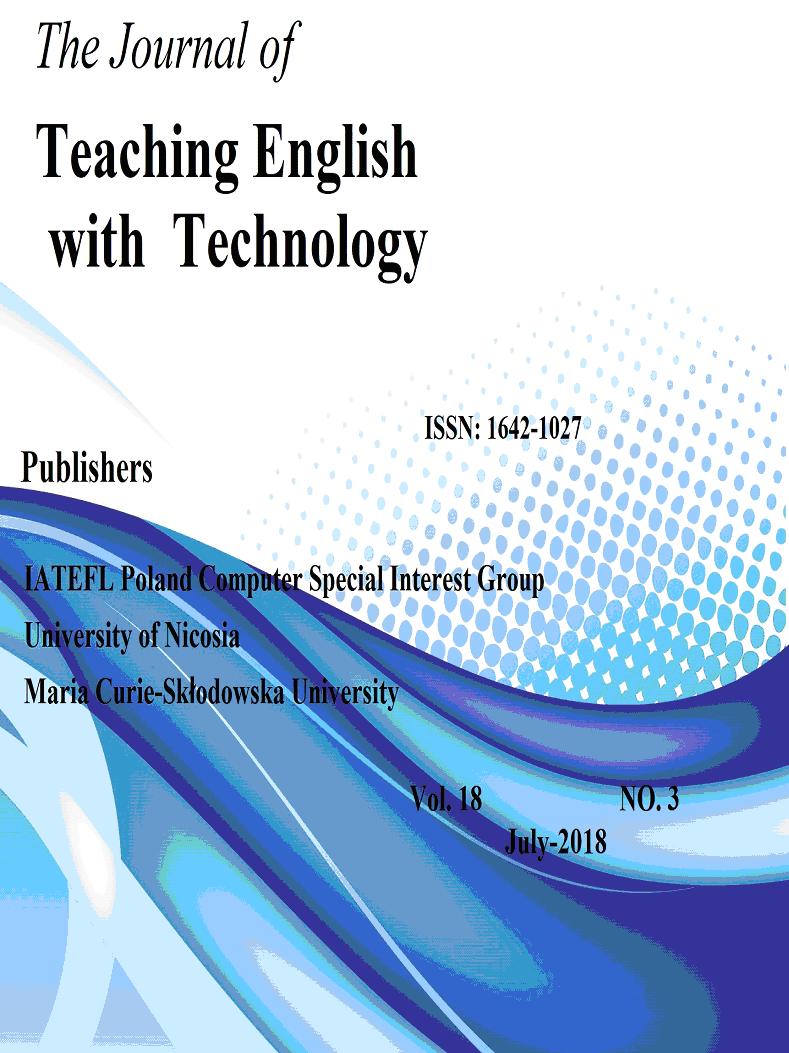INVESTIGATING EFL LEARNERS’ PERSPECTIVES ON VOCABULARY LEARNING EXPERIENCES THROUGH SMARTPHONE APPLICATIONS
INVESTIGATING EFL LEARNERS’ PERSPECTIVES ON VOCABULARY LEARNING EXPERIENCES THROUGH SMARTPHONE APPLICATIONS
Author(s): Saman Ebadi, Saba BashiriSubject(s): Foreign languages learning
Published by: IATEFL Poland Computer Special Interest Group and The University of Nicosia
Keywords: MALL; smartphones apps; vocabulary learning; evaluation criteria
Summary/Abstract: This study investigated EFL learners’ perspectives about their vocabulary learning experiences via a smartphone application. An online demographic questionnaire was used for recruiting 50 EFL learners from a language teaching channel in Telegram messenger required to use a smartphone application called Vocabulary Flashcards 2016 for a month. After finishing the sampling procedure, the participants were asked to take part in Dialang online diagnostic test to specify their vocabulary level proficiency based on CEFR (Common European Framework of Reference). The quantitative and qualitative data were collected utilizing evaluation questionnaires and semi-structured interviews respectively. The evaluation questionnaire adapted from Chapelle’s (2001) evaluation criterion was used to evaluate the application from the users’ perspectives. This study investigated the effects of learners’ proficiency level and gender differences on using the application, and their perspectives on the negative and positive aspects of the application were also uncovered. The findings showed that the users held positive attitudes towards the application because it influenced their learning positively and provided them with both form and meaning-focused instruction, but they were dissatisfied with the app’s levels and authenticity. Results of independent t-test and ANOVA respectively showed that gender and vocabulary proficiency level did not make significant difference on participants’ app usage patterns. The findings of this study highlighted the users’ localized needs which could be used as guidelines for customized vocabulary apps’ development purposes. The study’s implications for learners, teachers, and app developers are discussed in detail.
Journal: Teaching English with Technology
- Issue Year: 18/2018
- Issue No: 3
- Page Range: 126-151
- Page Count: 26
- Language: English

